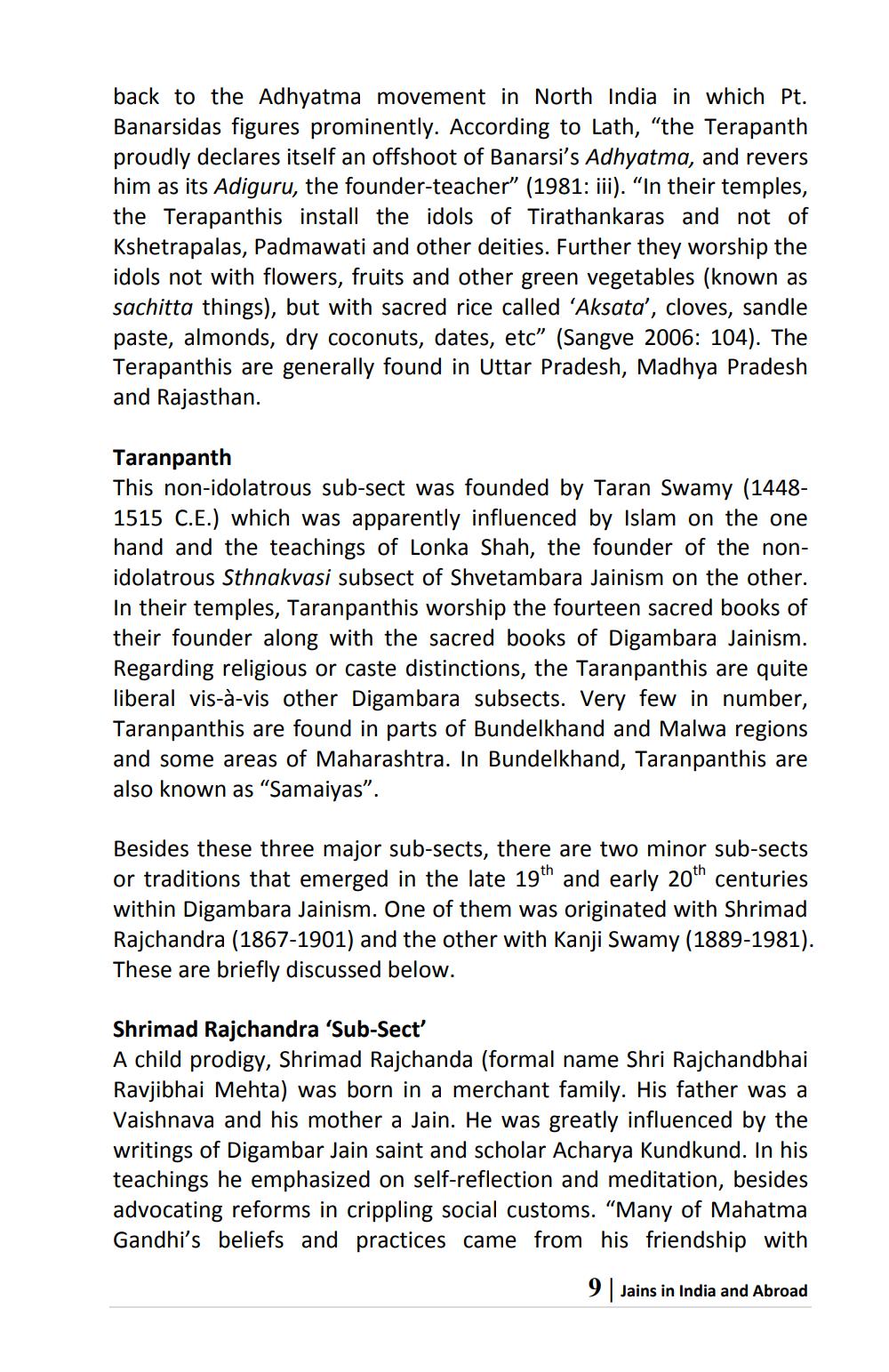________________
back to the Adhyatma movement in North India in which Pt. Banarsidas figures prominently. According to Lath, "the Terapanth proudly declares itself an offshoot of Banarsi's Adhyatma, and revers him as its Adiguru, the founder-teacher” (1981: iii). "In their temples, the Terapanthis install the idols of Tirathankaras and not of Kshetrapalas, Padmawati and other deities. Further they worship the idols not with flowers, fruits and other green vegetables (known as sachitta things), but with sacred rice called 'Aksata', cloves, sandle paste, almonds, dry coconuts, dates, etc” (Sangve 2006: 104). The Terapanthis are generally found in Uttar Pradesh, Madhya Pradesh and Rajasthan.
Taranpanth This non-idolatrous sub-sect was founded by Taran Swamy (14481515 C.E.) which was apparently influenced by Islam on the one hand and the teachings of Lonka Shah, the founder of the nonidolatrous Sthnakvasi subsect of Shvetambara Jainism on the other. In their temples, Taranpanthis worship the fourteen sacred books of their founder along with the sacred books of Digambara Jainism. Regarding religious or caste distinctions, the Taranpanthis are quite liberal vis-à-vis other Digambara subsects. Very few in number, Taranpanthis are found in parts of Bundelkhand and Malwa regions and some areas of Maharashtra. In Bundelkhand, Taranpanthis are also known as "Samaiyas”.
Besides these three major sub-sects, there are two minor sub-sects or traditions that emerged in the late 19th and early 20th centuries within Digambara Jainism. One of them was originated with Shrimad Rajchandra (1867-1901) and the other with Kanji Swamy (1889-1981). These are briefly discussed below.
Shrimad Rajchandra 'Sub-Sect' A child prodigy, Shrimad Rajchanda (formal name Shri Rajchandbhai Ravjibhai Mehta) was born in a merchant family. His father was a Vaishnava and his mother a Jain. He was greatly influenced by the writings of Digambar Jain saint and scholar Acharya Kundkund. In his teachings he emphasized on self-reflection and meditation, besides advocating reforms in crippling social customs. "Many of Mahatma Gandhi's beliefs and practices came from his friendship with
9
Jains in India and Abroad




